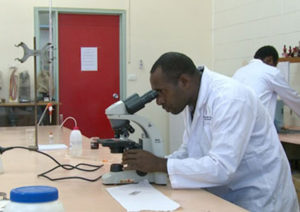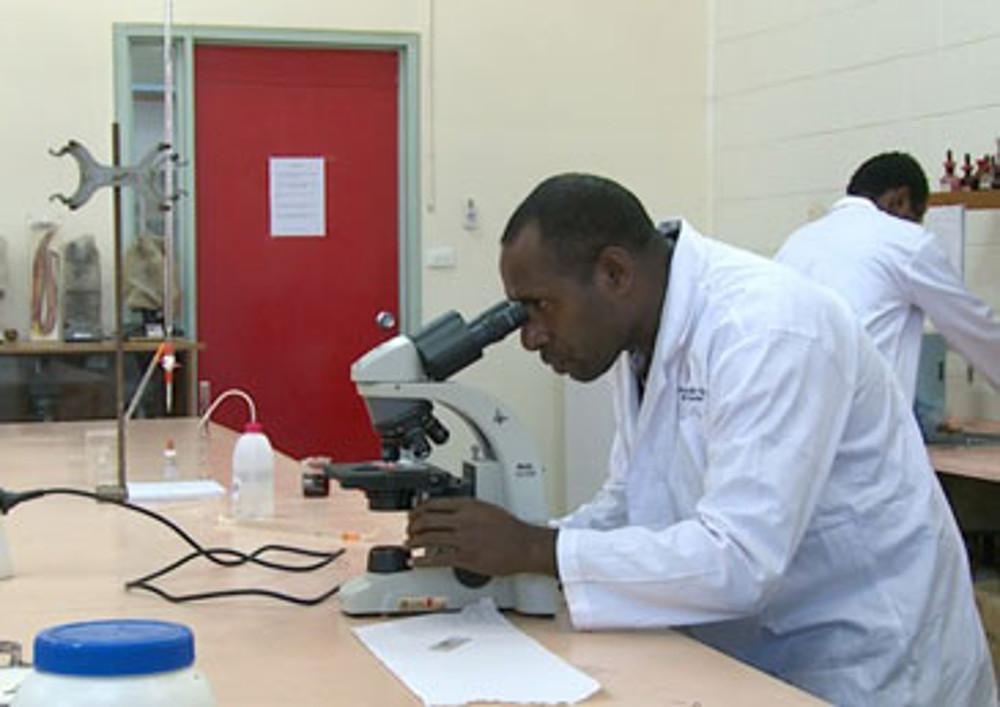 Nine students from the Papua New Guinea (PNG) University of Technology are currently undergoing a 10-week industrial training attachment with the four tuna processing and canning companies based in Lae and Madang.
Nine students from the Papua New Guinea (PNG) University of Technology are currently undergoing a 10-week industrial training attachment with the four tuna processing and canning companies based in Lae and Madang.
The training placements under way with Frabelle, International Food Corporation, Majestic Seafoods and RD Tuna Canners enable students to gain practical experience on the factory floor and in laboratories, to build their professional skills in seafood quality assurance and control.
The placements are facilitated by the European Union (EU)-supported Development of Tuna Fisheries in the Pacific Project (DevFish2) project, which is implemented by the Pacific Community (SPC).
The Devfish initiative encompasses the provision of training to the tuna industry for the expansion of exports of processed products in recognition of significant efforts in the region to focus on developing shore-based processing, with the ultimate objective of becoming major downstream players in the global tuna market.
Since 2013, 16 students have successfully completed the industrial attachment at tuna processing and canning companies in PNG, with support from the EU and SPC.
“The project support has enabled our students to gain exposure to the real work environment in the factories and also mentorship in other industrial specific areas,” the Department of Applied Sciences–Food Technology Training Coordinator, Sogoing Denano, remarked.
“Most of these students undergoing the internship will eventually be the local human resource capacity for the specialised food processing area and will ultimately support the domestic processing sector’s growth,” Ms Denano added.
The third-year students have undertaken prerequisite courses in food technology in the areas of seafood safety, regulatory requirements, sanitation, sensory analysis and other areas of processing food products.
PNG’s domestic tuna industry is experiencing investment growth, particularly in onshore factories.
However, the processed tuna products of nearly all of the PNG factories are targeting the European market and are therefore subjected to high standards in fish processing and packaging.
“During a training needs analysis undertaken for the fisheries sector, the processing companies indicated there was a capacity gap in technical and specialised areas of food processing,” SPC’s DevFish Officer, Jonathan Manieva, said.
“Based on this finding, the project has been lending its support to this needs area of the growing industry.
“PNG is witnessing the continuing growth of its tuna processing industry so the demand for technical and specialised skills from within PNG will also continue to rise,” Mr Manieva said.
The industrial internship commenced on 9 November and will be end on 16 January 2016.
Media contact: Jonathan Manieva, SPC Fisheries Aquaculture and Marine Ecosystem Division, [email protected]
